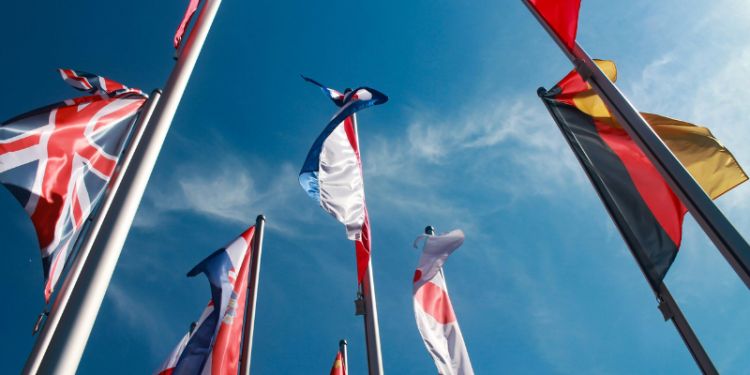COP at 30, Paris at 10, Trump at 2: What Future for Climate Multilateralism?

- Date: Wednesday 2 July 2025, 09:30 – 17:30
- Location: Michael Sadler SR (LG.19)
- Cost: Free
One-day workshop, University of Leeds, UK, Wednesday 2 July 2025
2025 marks both the 30th anniversary of the first meeting of the Conference of the Parties (COP) to the UN Framework Convention on Climate Change (UNFCCC), and the 10th anniversary of the Paris Agreement. Yet recent COPs have seen deep divisions over the key issues associated with tackling climate change, across mitigation, adaptation, finance, and loss and damage. For some, COP is ‘the only game in town’, the necessary if imperfect forum for coordinated global action on climate. Yet COP29 saw regression or stalemate on many key issues as well as a bitter conclusion, with India and other G77 states denouncing both developed states and the COP Presidency for ‘stage managing’ conference outcomes. And beyond this there are more longstanding questions about the adequacy of the UN climate regime and its processes, with former UNFCCC head Christiana Figueres, among others, calling for thoroughgoing COP reform, and critics such as Greta Thunberg dismissing the annual gatherings as little more than fossil fuelled greenwashing.
The COP30 and ‘Paris at 10’ anniversaries will clearly generate wide-ranging debate on these issues –and all the more so given that they now coincide with the Trump administration’s wide-ranging attacks on existing international frameworks and institutions, and a fraught, rapidly changing geopolitical conjuncture. This one-day workshop at the University of Leeds seeks to contribute to this debate by bringing together researchers and practitioners with a diversity of perspectives and expertise to reflect on the past, present and future of climate multilateralism. This will include contributions on:
- Recent COP and anticipated COP30 dynamics specifically;
- UNFCCC and Paris agreement processes more broadly;
- Specific sectors and agenda items under the UNFCCC and Paris frameworks;
- Multilateral coordination outside of UNFCCC fora;
- Climate clubs and climate ‘minilateralism’;
- Political, geopolitical and interest group contexts and drivers;
- Contrasting national, negotiation bloc and civil society perspectives; and
- Insights drawn from other multilateral fora (e.g. the Convention on Biological Diversity, and the Global Plastics Treaty negotiations).
The workshop’s central objective will be to facilitate learning, discussion and future research and research-practice collaborations; no immediate outputs or outcomes are planned (though it is intended that there will be follow-up events to this one in the run-up to COP30 and beyond). Hence the day will be organised around a single plenary conversation, with short individual contributions, and plenty of time for exchange.
Workshop Programme
9.30-10.00: Tea and coffee
10.00-10.15: Introduction and welcomes
10.15-12.00: Session 1: The UNFCCC, Reform Options, and their Critics
Chair: Jan Selby, University of Leeds
Ruth Townend, Chatham House: Climate governance: where are we now, and what might come next?
Steffen Bauer, German Institute of Development and Sustainability; and Wolfgang Obergassel and Victoria Brandemann, Wuppertal Institute: An evaluation of UNFCCC reform proposals in light of today’s geopolitics (online)
Jason Ralph, University of Leeds: If COP is ‘the only game in town’ its rules should change.
Remarks from Piers Forster, University of Leeds and UK Climate Change Committee
12.00-12.50: Lunch
12.50-1.30: Session 2:
Chair: Simon Lightfoot, University of Leeds
Prakash Kashwan, Brandeis University: Climate realisms: climate governance or climate apartheid? (online)
1.30-3.15: Session 3: Strategic actors and climate multilateralism
Chair: Clare Richardson-Barlow, University of Leeds
Karoliina Hurri, Finnish Institute of International Affairs: Sino-American climate collaboration and its future
Kate Hua-Ke Chi, Tufts University: Fossil fuel phase-out commitments and US-China climate relations
Dan Bradley, UK Mission to the EU: The EU facing COP30 (online)
James Jackson, University of Manchester: A finance gap only China can (now) bridge?
3.15-3.45: Refreshments
3.45-5.30: Session 4: Issues and sectors
Chair: Richard Beardsworth, University of Leeds
Shirley Lukin, Hebrew University of Jerusalem: Cities, transnational municipal networks, and climate multilateralism
Berat Senyerli, Bankable Zero: Youth engagement and climate multilateralism (online)
Ellie Kinney, Conflict and Environment Observatory: Military emissions and climate multilateralism
Max van Deursen, Wageningen University: UNFCCC transparency mechanisms (online)
5.30: Wrap up and Close

